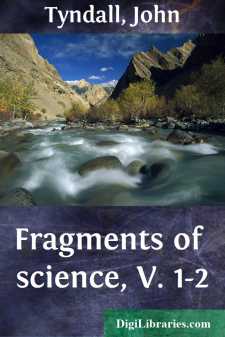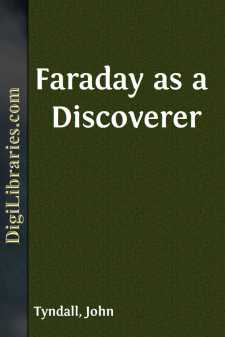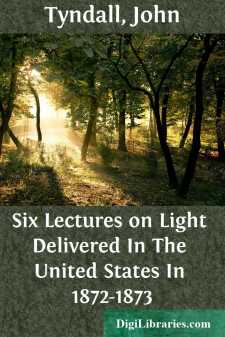Categories
- Antiques & Collectibles 13
- Architecture 36
- Art 48
- Bibles 22
- Biography & Autobiography 813
- Body, Mind & Spirit 142
- Business & Economics 28
- Children's Books 17
- Children's Fiction 14
- Computers 4
- Cooking 94
- Crafts & Hobbies 4
- Drama 346
- Education 46
- Family & Relationships 57
- Fiction 11829
- Games 19
- Gardening 17
- Health & Fitness 34
- History 1377
- House & Home 1
- Humor 147
- Juvenile Fiction 1873
- Juvenile Nonfiction 202
- Language Arts & Disciplines 88
- Law 16
- Literary Collections 686
- Literary Criticism 179
- Mathematics 13
- Medical 41
- Music 40
- Nature 179
- Non-Classifiable 1768
- Performing Arts 7
- Periodicals 1453
- Philosophy 64
- Photography 2
- Poetry 896
- Political Science 203
- Psychology 42
- Reference 154
- Religion 513
- Science 126
- Self-Help 84
- Social Science 81
- Sports & Recreation 34
- Study Aids 3
- Technology & Engineering 59
- Transportation 23
- Travel 463
- True Crime 29
John Tyndall
John Tyndall (1820–1893) was an Irish physicist and writer known for his work on atmospheric physics and light scattering. He is credited with explaining why the sky is blue through his studies on the scattering of light, now called the Tyndall effect. Tyndall authored several popular science books, including "Fragments of Science" and "Heat as a Mode of Motion," aimed at bringing complex scientific ideas to a wider audience. He was also a strong advocate for scientific education and promoted the role of empirical evidence in understanding nature.
Author's Books:
Sort by:
by:
John Tyndall
PREFACE. In the following work I have not attempted to mix Narrative and Science, believing that the mind once interested in the one, cannot with satisfaction pass abruptly to the other. The book is therefore divided into Two Parts: the first chiefly narrative, and the second chiefly scientific. In Part I. I have sought to convey some notion of the life of an Alpine explorer, and of the means by which...
more...
by:
John Tyndall
I. THE CONSTITUTION OF NATURE. [Footnote: 'Fortnightly Review,' 1865, vol. iii. p. 129.] WE cannot think of space as finite, for wherever in imagination we erect a boundary, we are compelled to think of space as existing beyond it. Thus by the incessant dissolution of limits we arrive at a more or less adequate idea of the infinity of space. But, though compelled to think of space as...
more...
by:
John Tyndall
Chapter 1. Parentage: introduction to the royal institution: earliestexperiments: first royal society paper: marriage. It has been thought desirable to give you and the world some image of MICHAEL FARADAY, as a scientific investigator and discoverer. The attempt to respond to this desire has been to me a labour of difficulty, if also a labour of love. For however well acquainted I may be with the...
more...
by:
John Tyndall
§ 1. Introduction. Some twelve years ago I published, in England, a little book entitled the 'Glaciers of the Alps,' and, a couple of years subsequently, a second book, entitled 'Heat a Mode of Motion.' These volumes were followed by others, written with equal plainness, and with a similar aim, that aim being to develop and deepen sympathy between science and the world outside of...
more...





